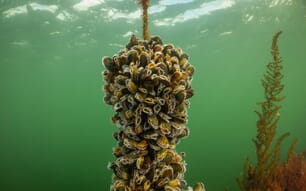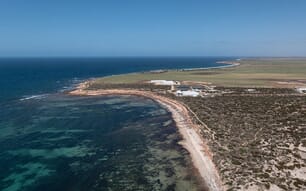CBCNews reports that the Atlantic Salmon Federation, a New Brunswick-based salmon conservation group, has appealed the July decision by the Newfoundland and Labrador government to release Grieg NL's planned salmon hatchery from further environmental assessment.
In court documents filed 17 February, the federation says the project application didn't include its on-land processing facility, and argues then-Environment and Climate Change Minister Perry Trimper shouldn't have released the $250-million project — in which the government is considering investing $45 million — without an environmental impact statement.
Steve Sutton, the ASF's co-ordinator of community engagement, said without the full project being included, all of the potential environmental impacts can't be evaluated.
"In this case, only the hatchery and grow-out facilities have been described," said Mr Sutton, a biologist with a doctorate in wildlife and fisheries.
"Our question is, what will be the processing facilities? How will it be done? What will be the environmental impacts around that? Clearly it's not a full project description if they've put forward a project that has no way at the moment to get their fish processed and to market."
The federation wants a Supreme Court judge to quash the decision. And while the appeal focuses on the approval process, Mr Sutton said the federation does have concerns about the project itself.
"Salmon in Placentia Bay have been assessed as 'threatened' by the Committee on the Status of Endangered Species in Canada, so there's concerns there," he said.
"One of the reasons cited by DFO as to why they're threatened is the aquaculture that's already on the south coast, so we're concerned about another aquaculture project, the largest one in Canada, coming in on top of that already-threatened population and the impact."
In its own court filing, the government says hundreds of processing plants have operated in Newfoundland and Labrador's history.
"It would seem that the use of a plant for the processing of one species rather than another would reasonably not attract scrutiny," reads the brief.
The federation also argues that Department of Justice officials warned their counterparts in Environment and Climate Change that registering the application without the on-land processing plant included could violate the province's environmental regulations, and that public concerns over the project should also have prompted an environmental impact statement.
The court had been scheduled to hear the appeal, along with one filed by St. John's lawyer Owen Myers in August, beginning Friday. However, the matter has been rescheduled to later this month.
The Department of Environment and Climate Change, now the Department of Municipal Affairs and Environment, did not respond to CBC's request for an interview.
Perry Power, Grieg's human resources manager, declined to respond to the lawsuit, telling CBC the company won't make a statement on a matter before the courts.
As for the project itself, Mr Power said plans are moving ahead.
"We're still involved in the due-diligence process with the province and hoping to have a resolution of that soon."




